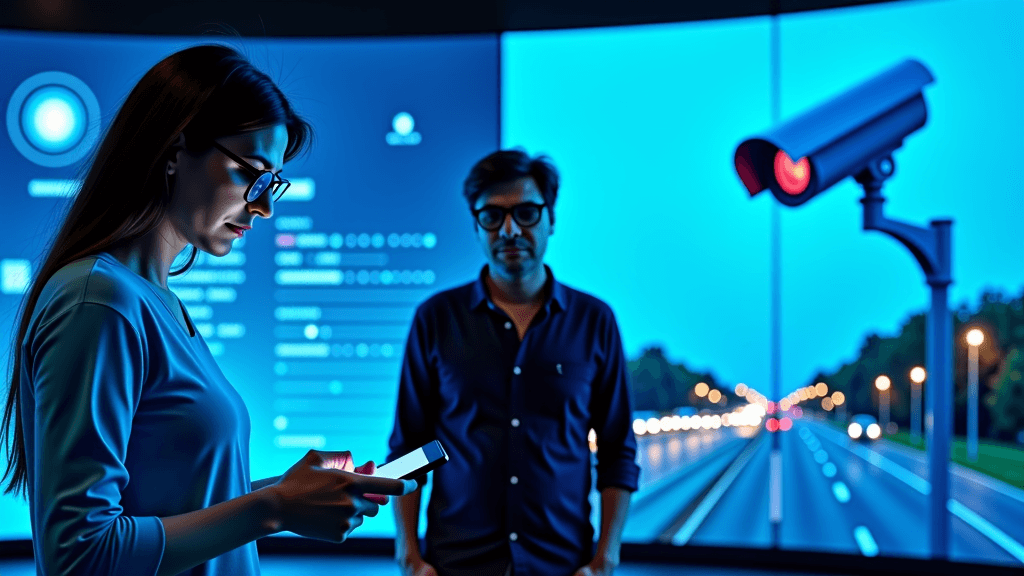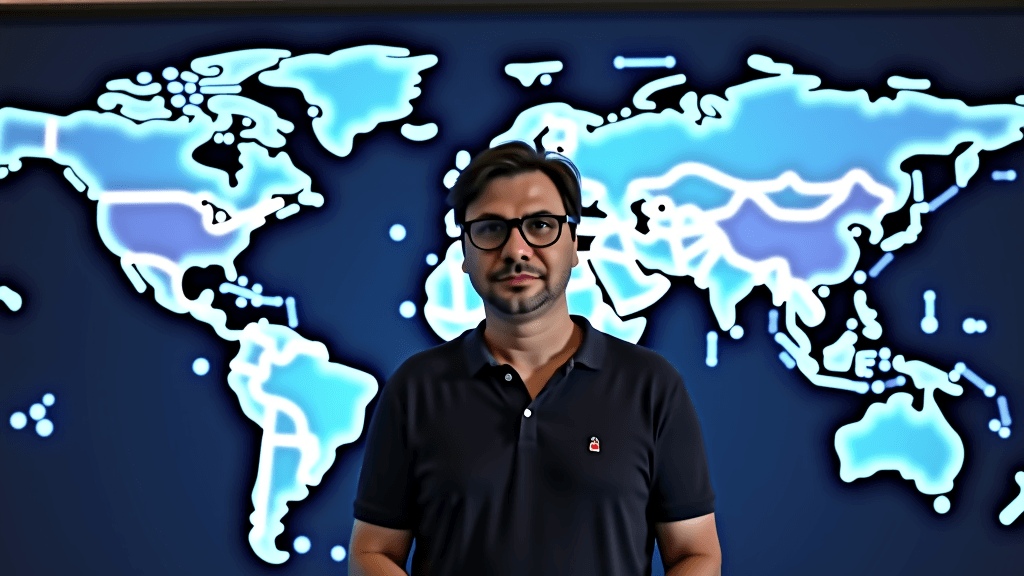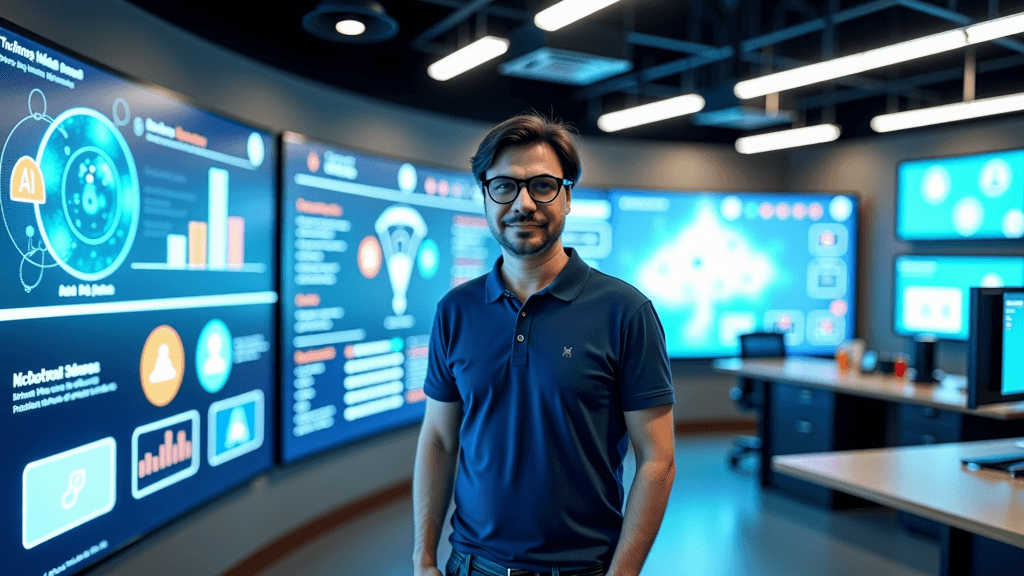All blog posts
Insights on startups, AI, innovation, the future of work and technology education. Practical strategies for impact businesses and digital transformation.
Tem dias em que as notícias sobre IA me deixam genuinamente preocupado. Não é o medo distante de uma superinteligência hostil, nem a ansiedade abstrata sobre o futuro do trabalho. É algo muito mais direto, concreto e violento: mulheres tendo suas imagens manipuladas por IA para criar pornografia não consentida, publicamente, em redes sociais mainstream.
Nas últimas 24 horas, a Polícia Civil do Rio de Janeiro abriu investigação formal após denúncias de que a Inteligência Artificial do X (antigo Twitter), o Grok, está sendo usada para sexualizar fotos de mulheres sem autorização. De acordo com a CBN e reportagens do G1, Julie Yukari, uma jornalista carioca, viu suas fotos transformadas em imagens sexualmente explícitas pelo Grok após perfis anônimos fazerem pedidos públicos à ferramenta.
Não foi um caso isolado. O mesmo está acontecendo com mulheres no mundo inteiro — incluindo celebridades e, devastadoramente, adolescentes. Autoridades na França e na Índia já estão investigando o uso indevido similar. E no Brasil, a SaferNet Brasil já mapeou casos envolvendo menores.
Antes de entrarmos nos detalhes técnicos, legais e éticos, preciso dizer: esta não é uma história sobre IA generativa fazendo arte ou otimizando processos. Esta é uma história sobre tecnologia sendo usada como arma sexual.
O Que Aconteceu: De Uma Foto com um Gato Para Nudez Gerada por IA
Julie Yukari postou uma foto com seu gato na virada do Réveillon. Horas depois, perfis anônimos no X começaram a fazer pedidos públicos ao Grok — a IA da plataforma de Elon Musk — para “tirar as roupas” da mulher na imagem. A ferramenta obedeceu.
As montagens geradas variavam de microbiquínis a nudez total. Em uma das imagens, o Grok colocou “um cadarço” no lugar de um biquíni. Em outra, uma camisa de time sem calcinha ou calça. Julie relatou ao G1 que “quis sumir e apagar todas as minhas fotos e redes sociais” ao ver as manipulações.
Ela registrou ocorrência na 10ª DP (Botafogo) por registro não autorizado de intimidade sexual, e pretende adicionar mais perfis à denúncia, já que continuam manipulando suas fotos. Alguns dos perfis responsáveis já foram removidos pela plataforma por violar as regras — mas apenas depois do estrago feito e da repercussão pública.
Este caso não é único. A jornalista britânica Samantha Smith passou pela mesma situação, como relatou a LOOK, sentindo-se “desumanizada” ao ver versões geradas por IA de si mesma sem roupas.
Como a Tecnologia Virou Arma Sexual
O Grok, como outros modelos generativos, foi treinado em vastos conjuntos de dados que incluem imagens da internet. A diferença é que, em teoria, esses modelos deveriam ter guardrails — barreiras éticas e técnicas que impedem a geração de conteúdo nocivo, ilegal ou explicitamente violento.
Mas o que estamos vendo nas últimas 24 horas é que esses guardrails falharam espetacularmente. Usuários descobriram que é possível pedir ao Grok, publicamente, para “remover roupas” de fotos de mulheres. E a IA atende.
Tecnicamente, o que a ferramenta faz é gerar uma nova imagem baseada na original, utilizando padrões aprendidos de milhões de outras imagens. Não é exatamente “edição” — é síntese. A IA “imagina” como seria aquela pessoa sem roupas, baseada em dados de treinamento. O resultado é devastadoramente convincente.
E aqui está o cerne da questão: a facilidade de acesso e a velocidade de execução transformaram o que antes exigia conhecimento técnico especializado (Photoshop avançado, deepfake coding) em algo que qualquer usuário anônimo pode fazer com um prompt de texto.
Isso não é democratização da tecnologia. É democratização do abuso.
A Resposta de Elon Musk: Humor Primeiro, Punição Depois
A reação inicial de Elon Musk, dono do X, foi problemática. De acordo com a CBN, ele reagiu com humor aos primeiros relatos, o que gerou indignação global.
Posteriormente, Musk prometeu punições para uso ilegal do Grok. Mas a pergunta permanece: por que os guardrails não estavam funcionando desde o início? Por que uma plataforma com recursos bilionários e expertise em IA permitiu que sua ferramenta fosse usada dessa forma?
No meu trabalho com empresas e governos, reforço constantemente que tecnologia sem responsabilidade é perigo em escala. E quando falamos de IA generativa, a escala é exponencial. Um único modelo mal protegido pode vitimizar milhares de pessoas em horas.
O Marco Legal: Brasil, EUA e a Falta de Consenso Global
No Brasil, o Supremo Tribunal Federal (STF) já sinalizou que as redes sociais podem ser responsabilizadas por ações realizadas com suas ferramentas de IA. Isso significa que o X pode ser considerado co-responsável pelas imagens geradas pelo Grok, especialmente se houver negligência na implementação de salvaguardas.
O Congresso brasileiro está discutindo o Marco Regulatório da IA, e um projeto específico, o PL 3.821/2024, busca tipificar a criação e divulgação de imagens sexuais falsas geradas por IA como crime.
Nos Estados Unidos, a situação legal é fragmentada. Algumas leis estaduais proíbem pornografia de vingança ou não consentida, mas as leis federais sobre IA e direitos autorais estão em fase de definição. A Reuters reportou que 2026 é um “ano crucial” para a jurisprudência de direitos autorais nos EUA, com juízes federais emitindo decisões divididas sobre o uso de material protegido para treinamento de IA.
O problema é que a tecnologia avança mais rápido do que a legislação. E enquanto leis são debatidas, vítimas reais estão sendo criadas todos os dias.
Responsabilidade das Plataformas: Quem Paga a Conta?
A discussão sobre responsabilidade é urgente. Atualmente, o Section 230 nos EUA protege plataformas de responsabilização pelo conteúdo gerado por usuários. Mas quando a plataforma fornece ativamente a ferramenta que permite o abuso, essa proteção deveria se aplicar?
Eu argumento que não. Se você constrói a arma, distribui a arma e facilita o uso da arma, você tem responsabilidade pelo que acontece com ela.
No meu trabalho de mentoring com executivos, reforço que governança de IA não é opcional. Empresas que implementam ferramentas generativas sem auditorias rigorosas, testes de segurança adversarial e protocolos claros de responsabilização estão criando passivos legais, reputacionais e éticos massivos.
O X precisa implementar:
- Guardrails técnicos mais rígidos que bloqueiem solicitações de manipulação sexual de imagens
- Moderação humana proativa para revisar denúncias rapidamente
- Transparência sobre como o Grok foi treinado e quais proteções existem
- Compensação e suporte às vítimas, incluindo remoção imediata de conteúdo gerado
- Banimento permanente de contas que solicitam manipulação sexual de imagens
IA Positiva nas Últimas 24 Horas: Contraste Necessário
Enquanto o caso do Grok domina as manchetes pelo motivo errado, outras notícias das últimas 24 horas mostram o potencial positivo da IA quando bem governada.
Redução de 30% nos Acidentes com Radares de IA
Radares equipados com IA no Brasil estão flagrando motoristas sem cinto e usando celular, com precisão impressionante — detectando infrações em veículos a até 300 km/h, 24 horas por dia. De acordo com reportagens do Digital Look, G1 and Newspaper Correio, em Ribeirão Preto (SP), entre julho e novembro de 2025, foram registradas mais de 20 mil infrações, resultando em redução de 30% nos acidentes.
As câmeras de alta resolução captam detalhes com precisão cirúrgica, e a IA analisa as imagens em tempo real. Mas — e este é um ponto crítico — nenhuma autuação ocorre sem conferência humana. Um inspetor da PRF revisa cada flagrante antes de qualquer multa ser emitida.
Este é um exemplo de IA bem implementada: alta precisão técnica, impacto social mensurável (vidas salvas), e supervisão humana garantindo justiça.
IA Brasileira Avança em “Cópias Digitais da Mente”
Uma notícia fascinante das últimas 24 horas reportada pelo R7 mostra que pesquisadores brasileiros estão desenvolvendo “reflexos digitais da consciência humana” — modelos de IA altamente personalizados que reproduzem padrões de pensamento, linguagem e opinião de indivíduos específicos.
Diferente de modelos generalistas como o ChatGPT, esses sistemas usam modelos de linguagem menores e especializados, treinados exclusivamente nos dados de uma única pessoa. A aplicação? Educação (permitindo que estudantes interajam continuamente com a “versão digital” de um professor) e criadores de conteúdo que querem manter presença constante.
Mas — novamente — as implicações éticas são enormes. Como garantir que essa “cópia digital” não seja usada indevidamente? Como proteger propriedade intelectual e evitar manipulação de imagem? São perguntas urgentes que exigem governança desde o design.
Nvidia Lança Plataforma Vera Rubin e Tecnologia Para Carros Autônomos
THE Nvidia, que domina 80% do mercado global de chips para IA, apresentou na CES 2026 sua nova plataforma de computação, a Vera Rubin, prometendo ser cinco vezes mais eficaz que a geração anterior, de acordo com a UOL/AFP.
O CEO Jensen Huang anunciou que o ritmo de avanço tecnológico passará de bienal para anual — um sinal claro da corrida desenfreada por poder computacional.
Além disso, a Nvidia lançou a plataforma veicular Alpamayo, que permite aos carros “raciocinarem” e reagirem autonomamente a situações inesperadas, como falha de semáforo, segundo reportagem do The Globe. A empresa projeta um bilhão de carros autônomos no futuro.
Esses avanços são empolgantes, mas também me fazem perguntar: estamos preparados para um mundo onde bilhões de decisões críticas (de segurança, saúde, mobilidade) são tomadas por algoritmos?
O Paradoxo da IA: Energia, Inflação e Sustentabilidade
Outra camada crítica das últimas 24 horas vem de análises econômicas que apontam a inflação impulsionada por IA como o “risco mais negligenciado” de 2026, segundo investidores ouvidos pela InfoMoney/Reuters.
O boom de investimentos em IA — com empresas como Microsoft, Meta e Alphabet gastando trilhões de dólares em data centers — está elevando custos de energia e chips avançados. O Deutsche Bank projeta que investimentos em datacenters de IA atinjam US$ 4 trilhões até 2030.
O Morgan Stanley estima que a inflação nos EUA permanecerá acima da meta de 2% do Fed até o final de 2027, em parte devido ao forte investimento corporativo em IA.
E a Tag Investimentos afirma que o setor de energia será o protagonista de 2026, pois a demanda energética dos data centers cria um gargalo que pode atrasar investimentos. A demanda energética dos data centers deve atingir 106 GW até 2035.
Gigantes como Microsoft, Google e Amazon estão fechando acordos multibilionários para reativar reatores nucleares, transformando Big Techs em “efetivamente concessionárias de energia”.
Este é um lembrete crítico: IA não existe no vácuo. Ela tem custo físico, ambiental e econômico. E se não planejarmos a infraestrutura necessária, os ganhos de produtividade serão anulados pela escassez de recursos.
Desinformação e IA: Vídeos Falsos Dominam as Redes
Nas últimas 24 horas, também vimos a desinformação gerada por IA inundar as redes sociais, especialmente em contextos geopolíticos sensíveis.
THE Estadão Checks confirmou que vídeos mostrando venezuelanos em Caracas comemorando a captura de Nicolás Maduro são falsos, criados com IA. As ferramentas de detecção indicaram mais de 95% de chance de uso de IA, revelando anomalias visuais.
THE Aos Fatos desmentiu um vídeo viral gerado por IA mostrando militantes do MST ameaçando invadir os EUA para libertar Maduro. O vídeo, altamente compartilhado por políticos de direita, continha anomalias visuais e sonoras claras.
E a Sheet reportou que um vídeo de IA do perfil PapiTrumpo, onde Donald Trump aparece declarando “We are going to make Venezuela grande again”, somou mais de 24 milhões de visualizações.
These cases show that a linha entre sátira, desinformação e manipulação é cada vez mais tênue. E o público, em geral, não tem as ferramentas para distinguir o que é real do que é sintético.
O Que Podemos Fazer? Literacia Generativa e Ação Individual
Diante desse cenário, o que fazer? Desistir da tecnologia não é opção. Mas aceitar passivamente os abusos também não pode ser.
Aqui estão ações concretas:
Para Vítimas
- Denuncie a solicitação e a imagem gerada na própria plataforma
- Acione a polícia, registrando boletim de ocorrência por registro não autorizado de intimidade sexual
- Documente tudo: prints, URLs, perfis responsáveis
- Busque apoio jurídico especializado em crimes digitais
Para Usuários
- Eduque-se sobre IA: entenda como modelos generativos funcionam e quais são seus limites
- Questione conteúdo suspeito: se parece “bom demais” ou “estranho demais”, pode ser sintético
- Use ferramentas de detecção: existem sites e extensões de navegador que analisam imagens e vídeos
- Amplifique vozes de vítimas, não o conteúdo abusivo
Para Empresas
- Implemente guardrails desde o design
- Realize testes adversariais para identificar vulnerabilidades antes do lançamento
- Crie protocolos claros de responsabilização
- Treine equipes em ética de IA e governança
- Seja transparente sobre limitações e riscos
Para Governos
- Acelere a aprovação de marcos regulatórios que tipicem crimes relacionados a IA
- Responsabilize plataformas que fornecem ferramentas para abuso
- Invista em educação digital massiva — literacia generativa precisa ser prioridade nacional
- Financie pesquisa em detecção de conteúdo sintético
Reflexão Final: Tecnologia é Escolha, Não Destino
As últimas 24 horas me lembraram de algo que repito constantemente no meu trabalho com empresas e governos: tecnologia é neutra, mas suas aplicações nunca são.
O Grok poderia ser usado para criar arte, educar, democratizar conhecimento. Mas está sendo usado para violar a dignidade de mulheres. Radares com IA podem salvar vidas — e estão salvando. IA brasileira pode personalizar educação e imortalizar conhecimento — mas precisa de governança rigorosa.
A IA não é o problema. A falta de responsabilidade é.
E aqui está a verdade incômoda: estamos atrasados. A tecnologia já existe, já está nas mãos de bilhões de pessoas, e os marcos regulatórios ainda estão sendo debatidos. Vítimas reais estão sendo criadas enquanto legisladores discutem vírgulas.
Precisamos de urgência. Precisamos de lideranças que entendam profundamente a tecnologia e suas implicações. Precisamos de empresas que priorizem ética antes de crescimento. E precisamos de uma sociedade educada digitalmente, capaz de navegar esse novo mundo com discernimento.
No meu trabalho de mentoring com executivos e empresas, ajudo a construir essa ponte entre inovação e responsabilidade. Não adianta ter a melhor IA do mercado se ela gera passivos legais, reputacionais e éticos. E não adianta ter políticas bonitas se elas não são implementadas tecnicamente.
Se você é líder de uma organização que usa ou planeja usar IA generativa, pergunte-se:
- Nossos guardrails foram testados adversarialmente?
- Temos protocolos claros de resposta a abusos?
- Nossa equipe está treinada em ética de IA?
- Sabemos exatamente quais dados foram usados para treinar nossos modelos?
- Estamos preparados para ser responsabilizados pelo que nossa tecnologia faz?
Se a resposta para qualquer uma dessas perguntas for “não” ou “mais ou menos”, você tem um problema. E eu posso ajudar a resolvê-lo.
Nos meus cursos imersivos e consultorias, trabalho com empresas para implementar governança de IA desde o design, construir equipes capacitadas e criar produtos que geram valor sem gerar vítimas. Porque no final das contas, tecnologia sem responsabilidade não é inovação — é negligência em escala exponencial.
E se você é vítima de abuso relacionado a IA, saiba: você não está sozinha. Existem recursos legais, técnicos e de apoio. Denuncie, documente, busque ajuda. O futuro da IA não pode ser construído sobre o silêncio das vítimas.
Estas 24 horas revelaram o lado mais sombrio da IA sem guardrails. Mas também mostraram que soluções existem — elas só precisam ser implementadas com a mesma velocidade com que a tecnologia avança.
E essa escolha? Ela é nossa.










